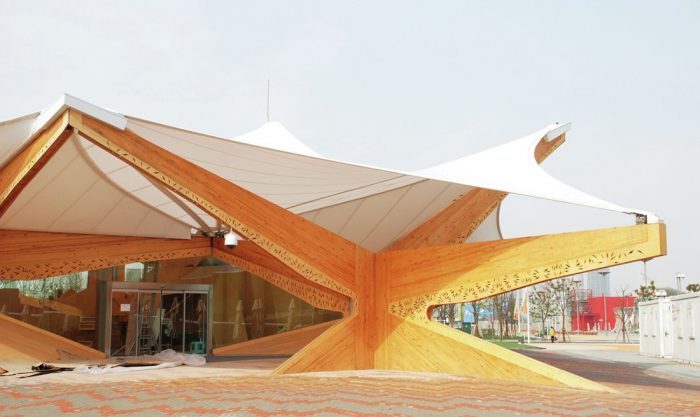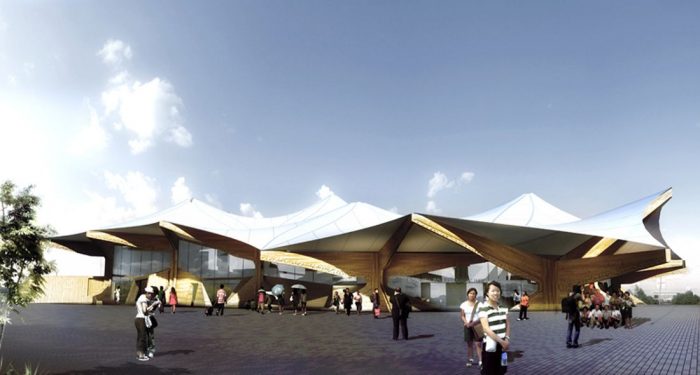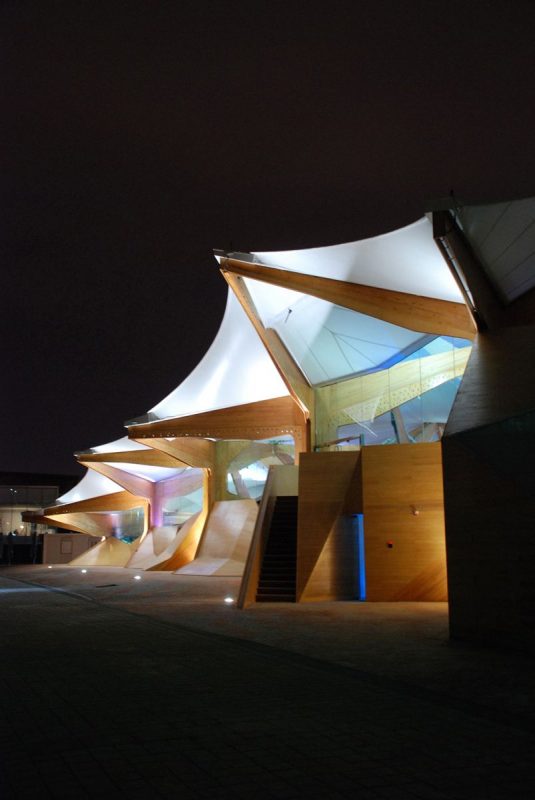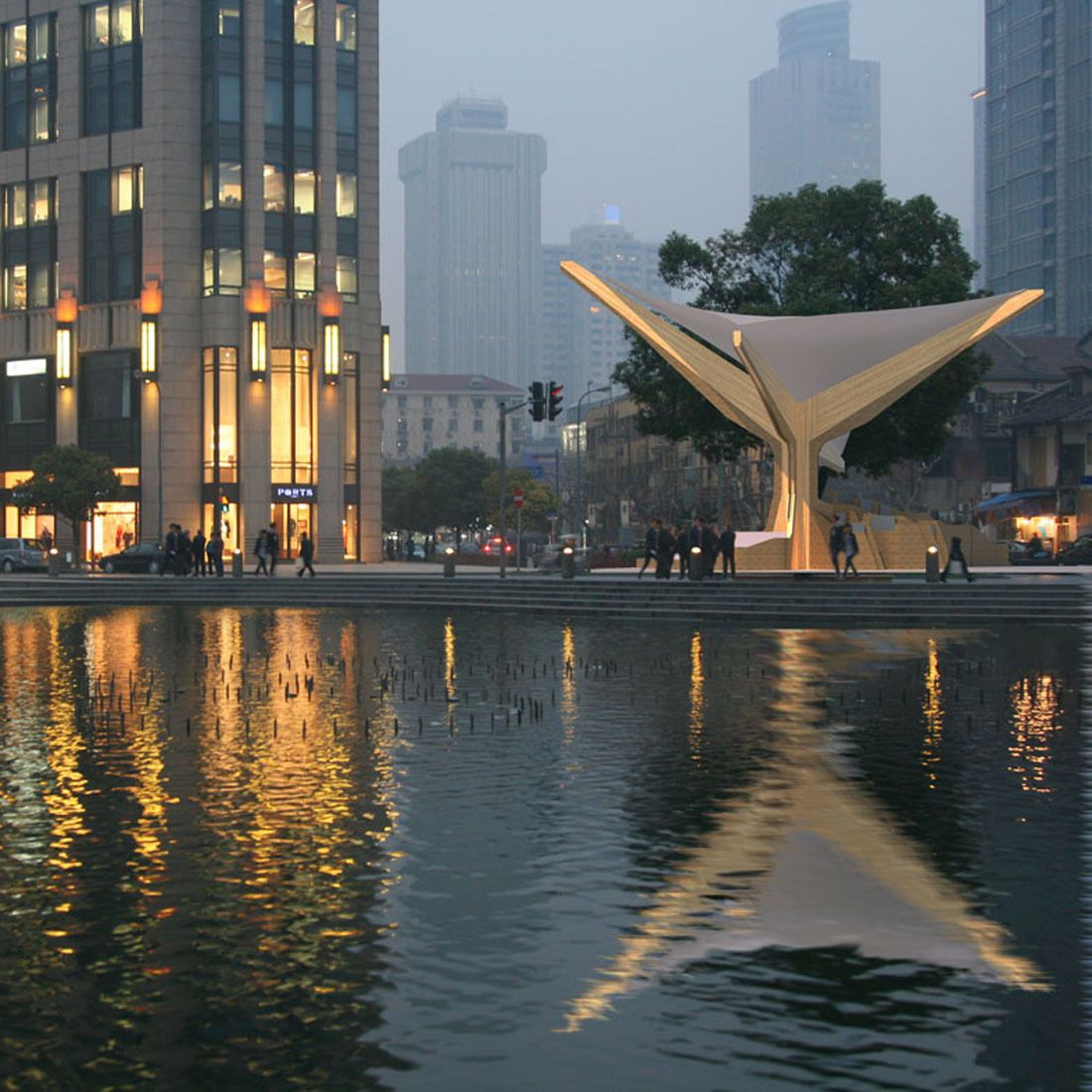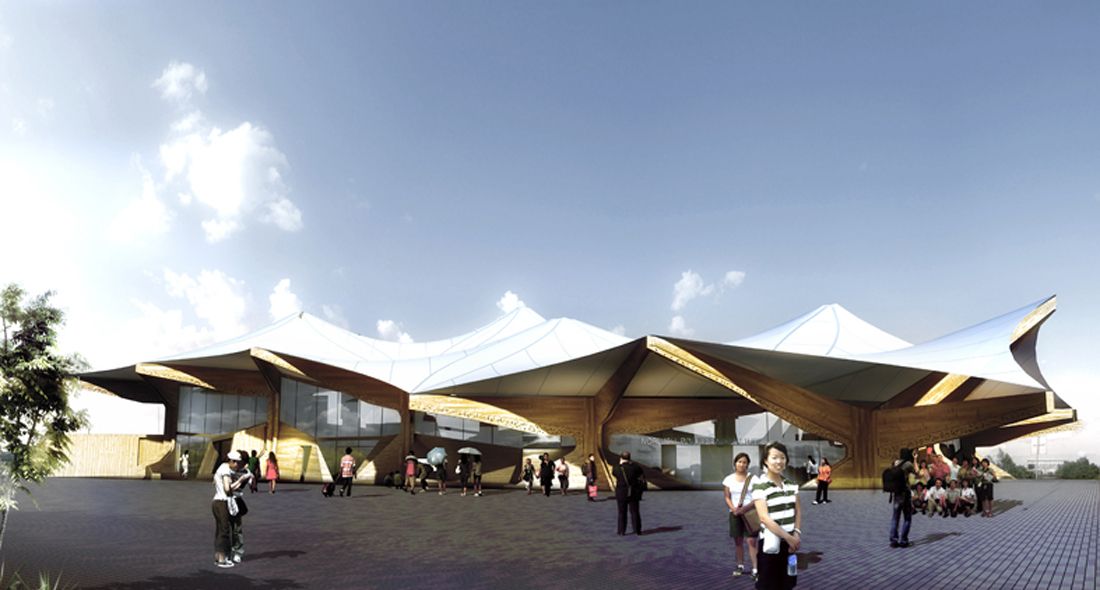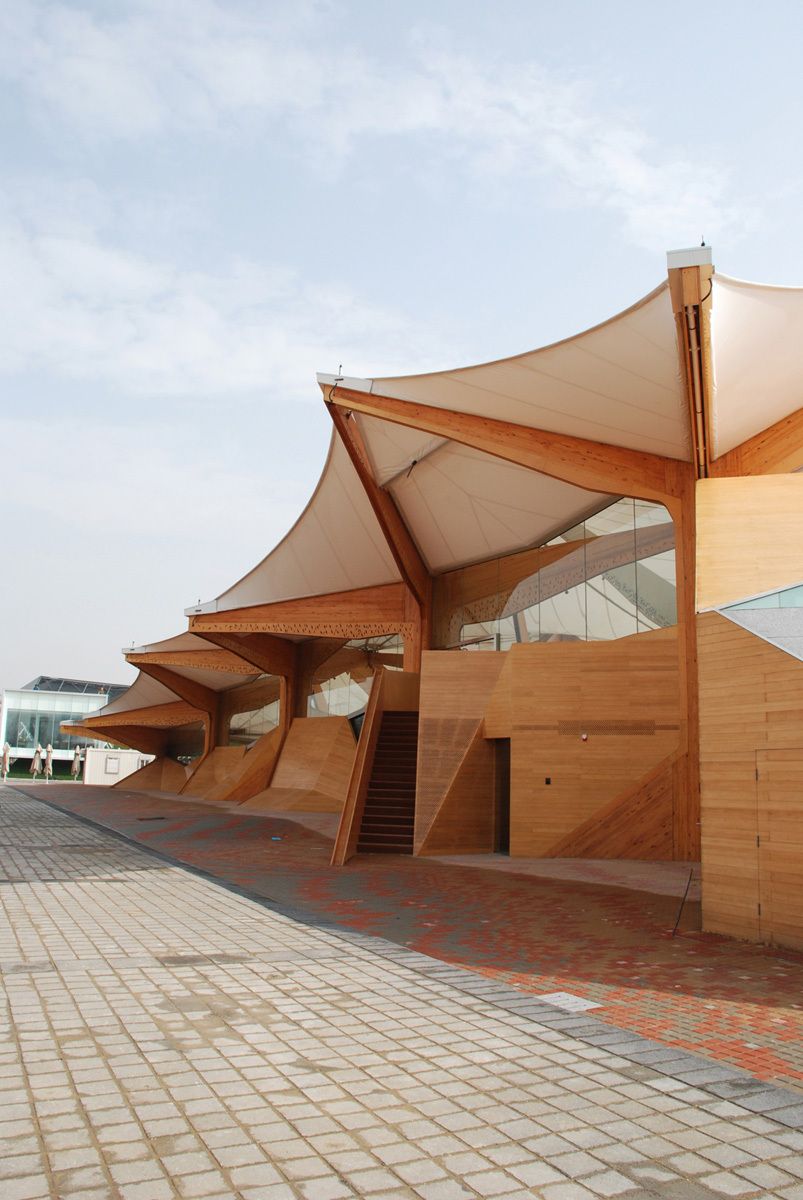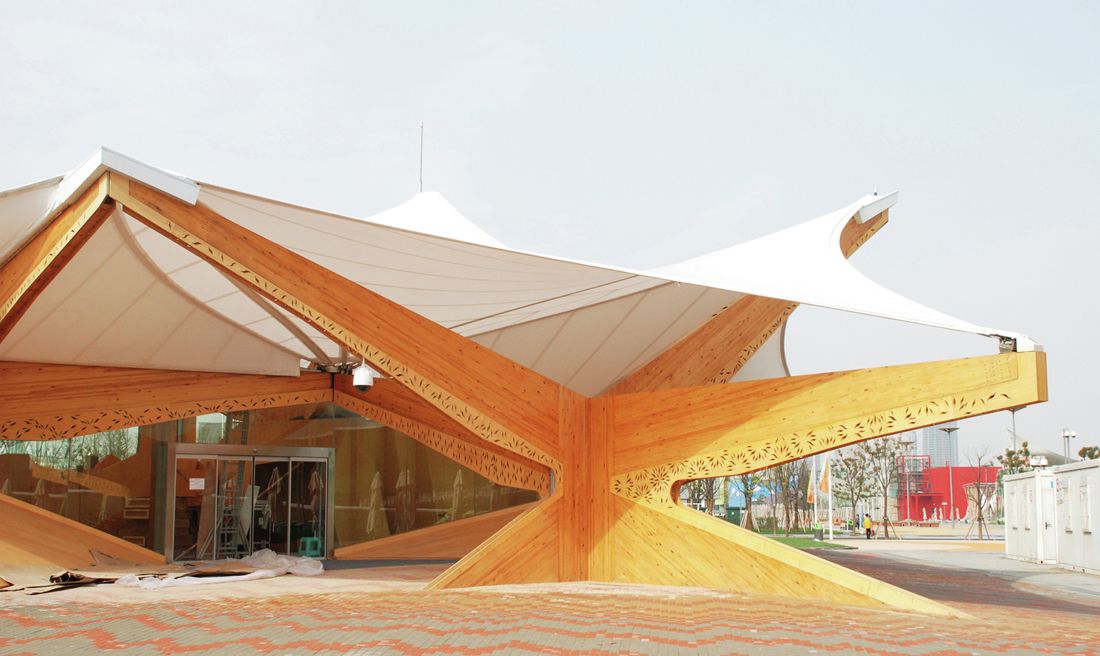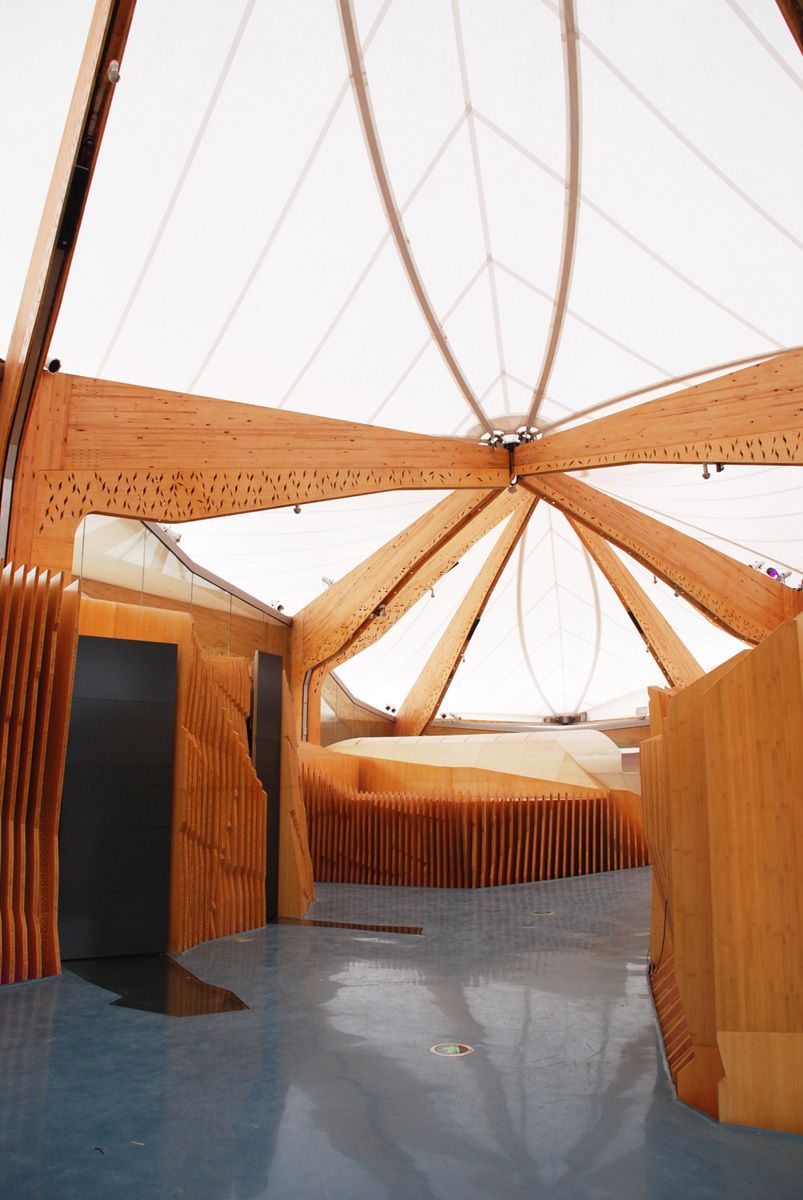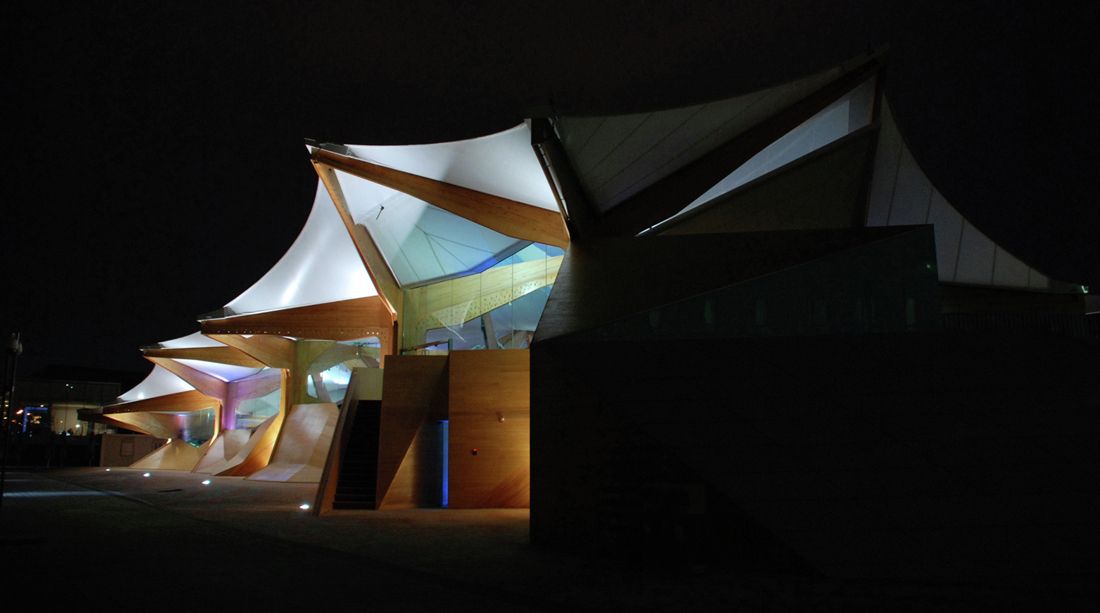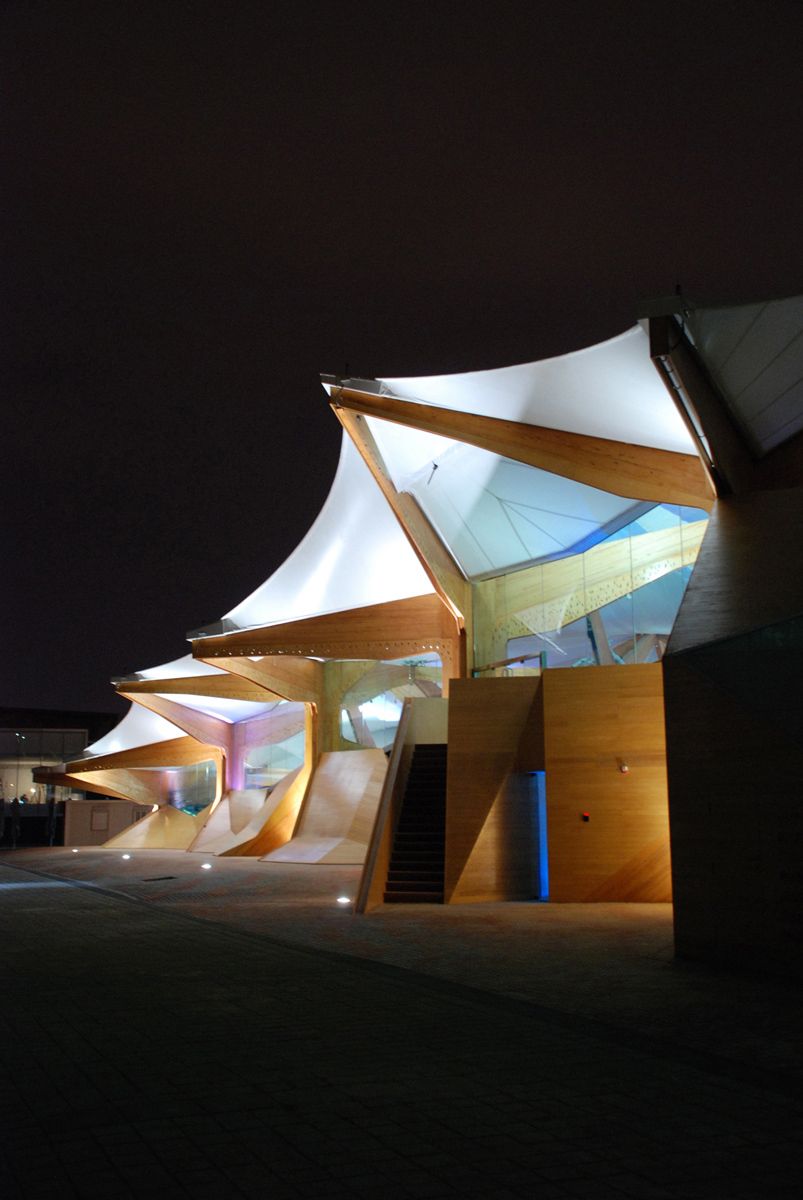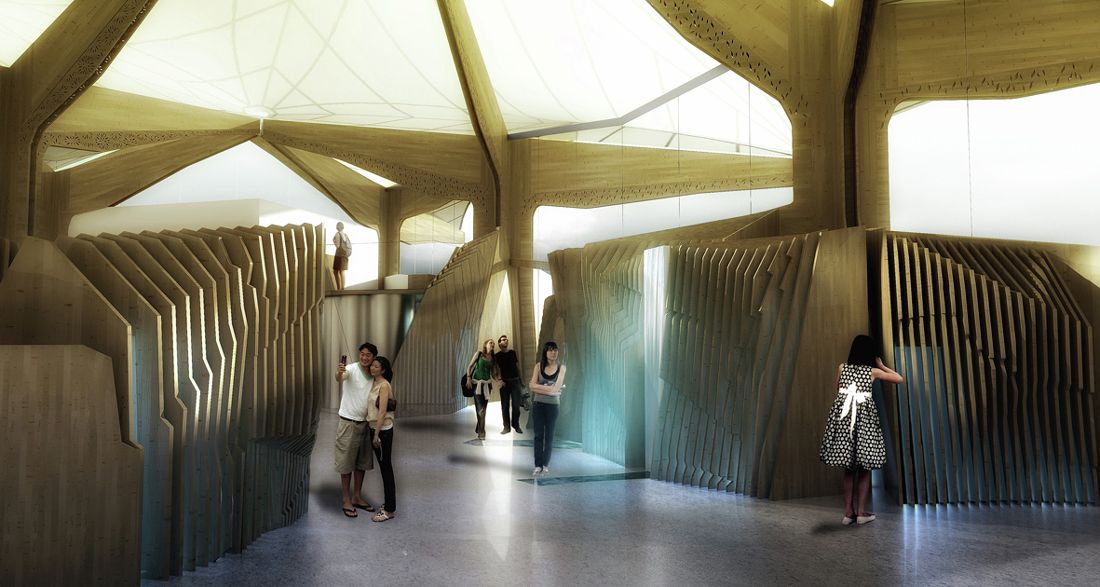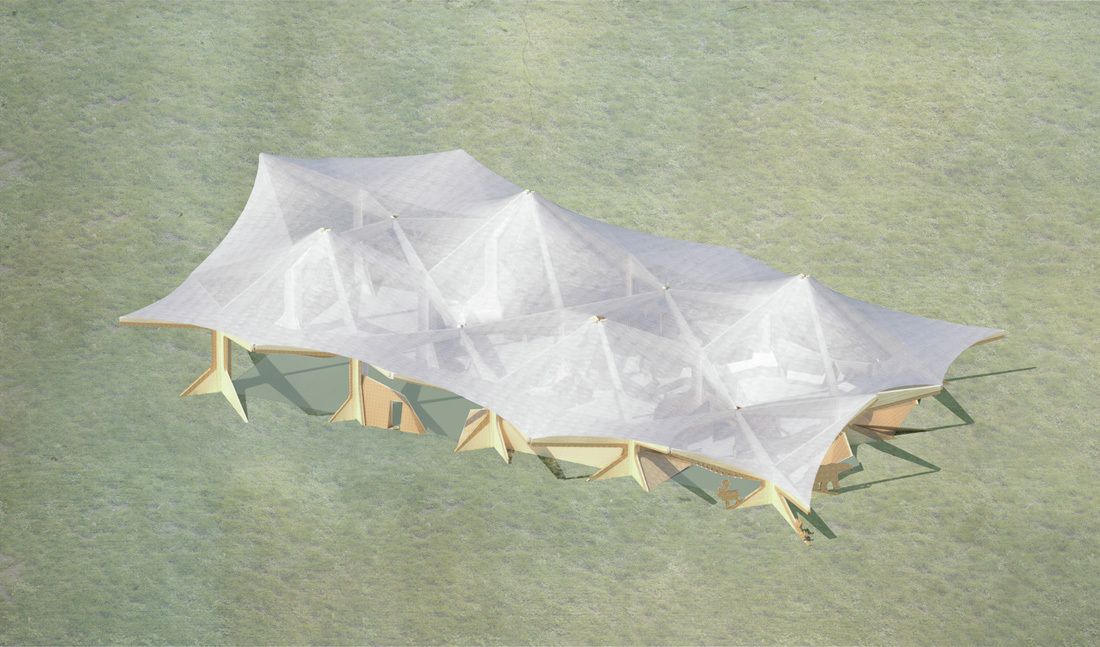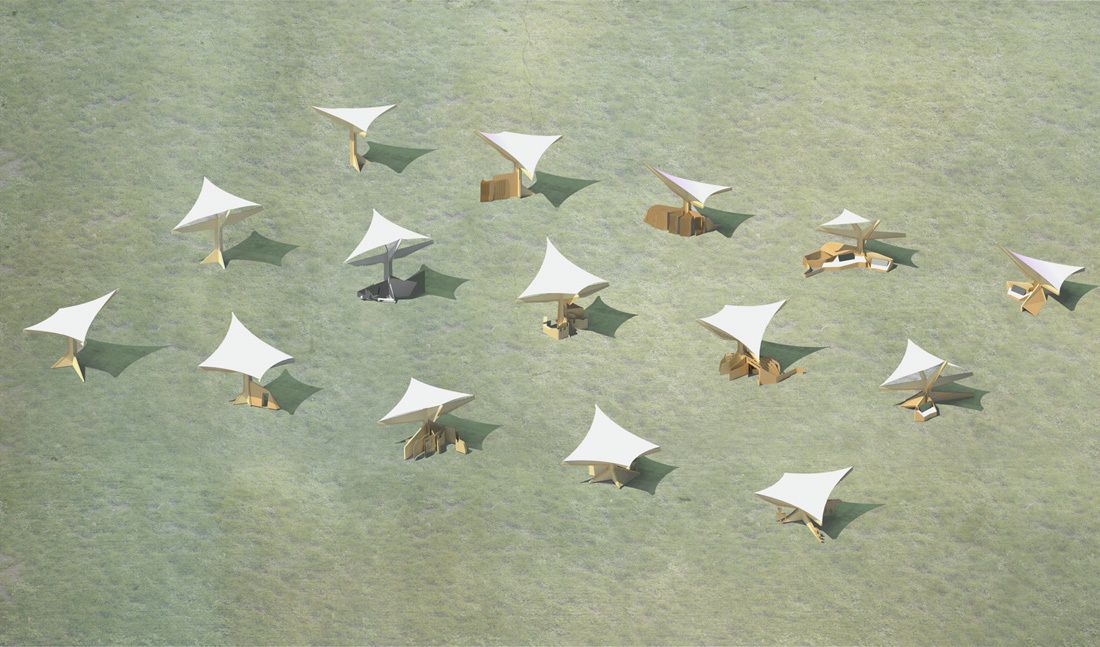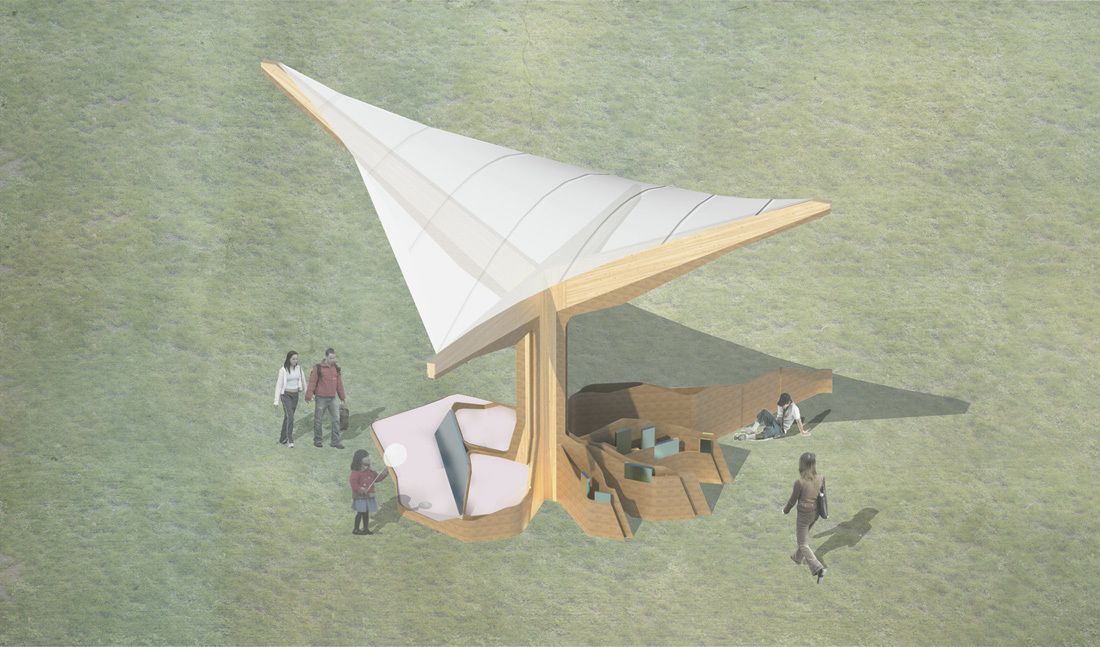Norway Pavilion, Expo Shanghai
The theme of the Expo 2010 in Shanghai, Better City, Better Life, was sustainable urban development for the future. With this theme in mind, of the use of extensive resources to erect a 2800 m2 exhibition pavilion for the duration of only140 days was almost impossible to legitimize.
Thus, our competition project aimed to extend the life of the pavilion through after-use. We invested less in the formal design than in creating a looser constellation of self-sustained components, which could easily be erected, dismantled and transformed. At the same time, we were expected to fulfill certain aesthetic and narrative qualities, which could represent Norway at the World Expo. This led us to the idea of a field of “trees” which would answer most requirements of the program, and, at the same time, adapt to the huge number of external inputs in the short design process of half a year. During the Expo period, the trees were assembled into a sensory and multifunctional “forest”. After the Expo, each individual tree would be reused as a social meeting place, playground, climbing tree or other multifunctional installation.
Each tree is made up of a laminated timber construction with four CNC cut and milled branches and one trunk, while four roots serve as foundations. The load-bearing construction was produced in Norway, the rest of the pavilion in China. The four branches uphold a pre-tensioned four-point membrane roof in Teflon. Integral to the design was avoiding the separation between the interior and exterior of the pavilion and between the architecture and an exhibition designed separately and installed afterward. Instead, we intended to weave together skin (membrane roof), infrastructure (air-conditioning, water, and energy supply, lighting), furniture, exhibition and information-display into every single tree.
To achieve this, we extended the construction with an extra layer of CNC cut bamboo plywood plates, so-called “add-ons”, along with the branches, trunk, and roots. Between these add-ons lay rain water pipes, sprinkler pipes, and electrical ducts. Monitors and screens were integrated into the roots, while the supply air was blown in through a perforated add-on.
The pavilion is made up of 15 trees, each of them a functional part of the whole pavilion – which means that each single tree has been influenced both from the top down and from the bottom up. To grasp the functional possibilities of the after-use, we initially planned not only to start with the design of the after-use but also to combine that process with the exhibition design. The idea was to develop the trees and the exhibition in local neighborhoods, in collaboration with both Norwegian professionals and the inhabitants. Unfortunately, merging these different design processes, which are normally temporally and geographically separated, was not accepted by our Norwegian client. Nevertheless, we had several workshops with Chinese students about the programmatic, figurative and financial possibilities of the reuse.
Project Info
Architects : Helen & Hard
Location : Shanghai, China
Client : Innovation Norway
Team : Siv Helene Stangeland, Reinhard Kropf, Moritz Groba, Randi Augenstein, Ute Schmidt , Mu Wei, Francisco Puga Ortiz
Year : 2010
Type : Pavilion
Courtesy of Helen & Hard
Courtesy of Helen & Hard
Courtesy of Helen & Hard
Courtesy of Helen & Hard
Courtesy of Helen & Hard
Courtesy of Helen & Hard
Courtesy of Helen & Hard
Courtesy of Helen & Hard
Courtesy of Helen & Hard
Courtesy of Helen & Hard
Courtesy of Helen & Hard
Courtesy of Helen & Hard


